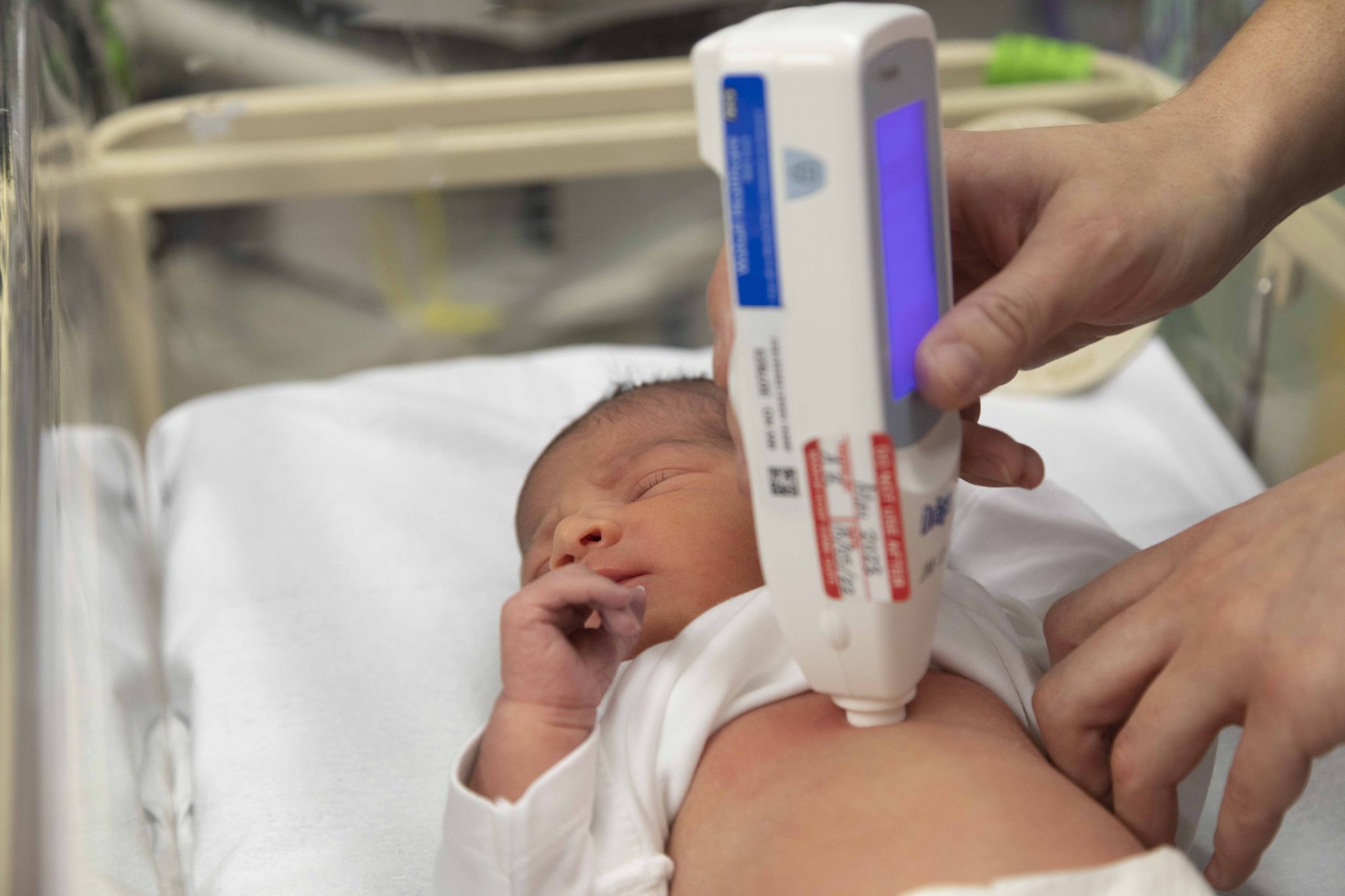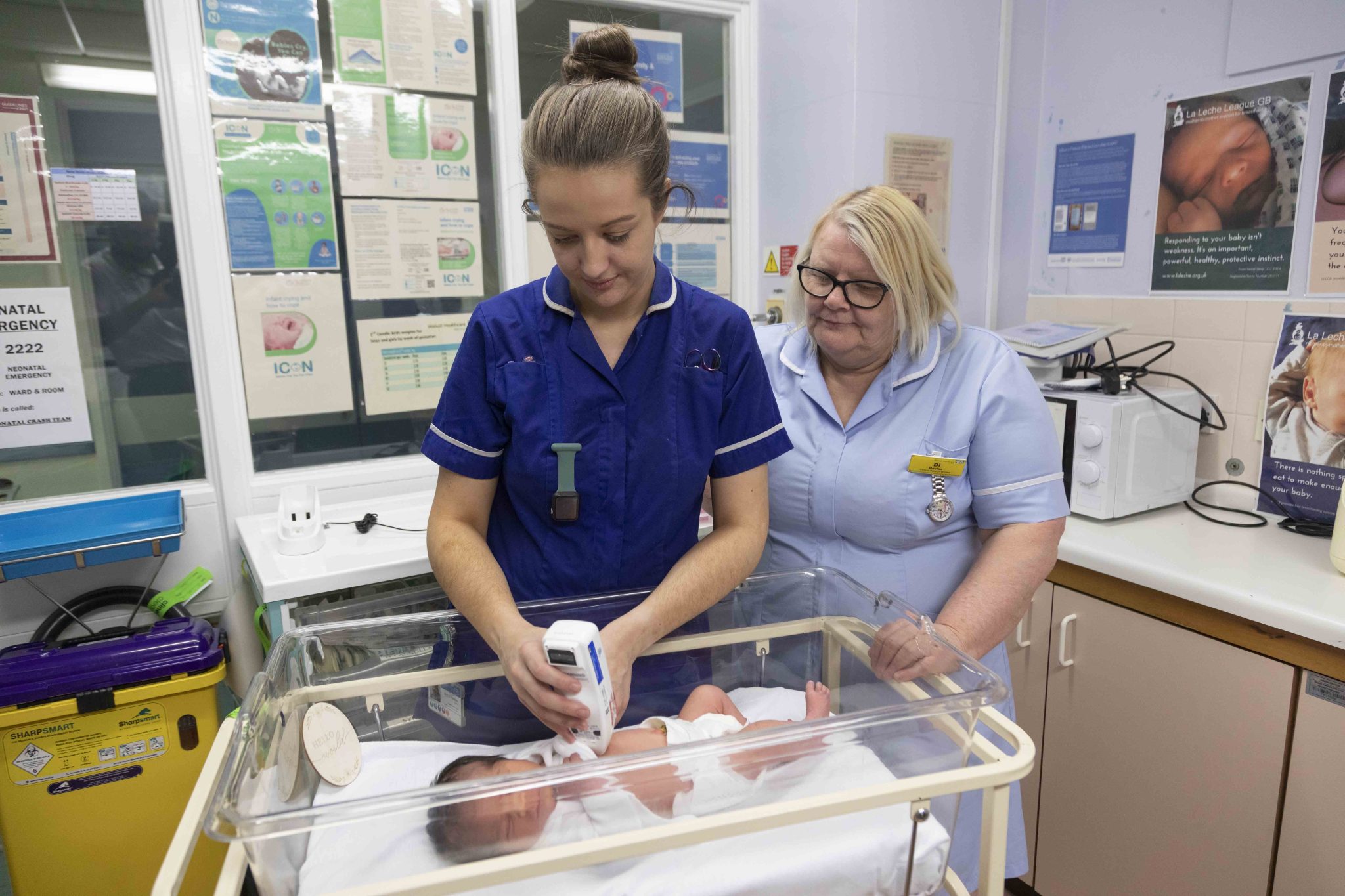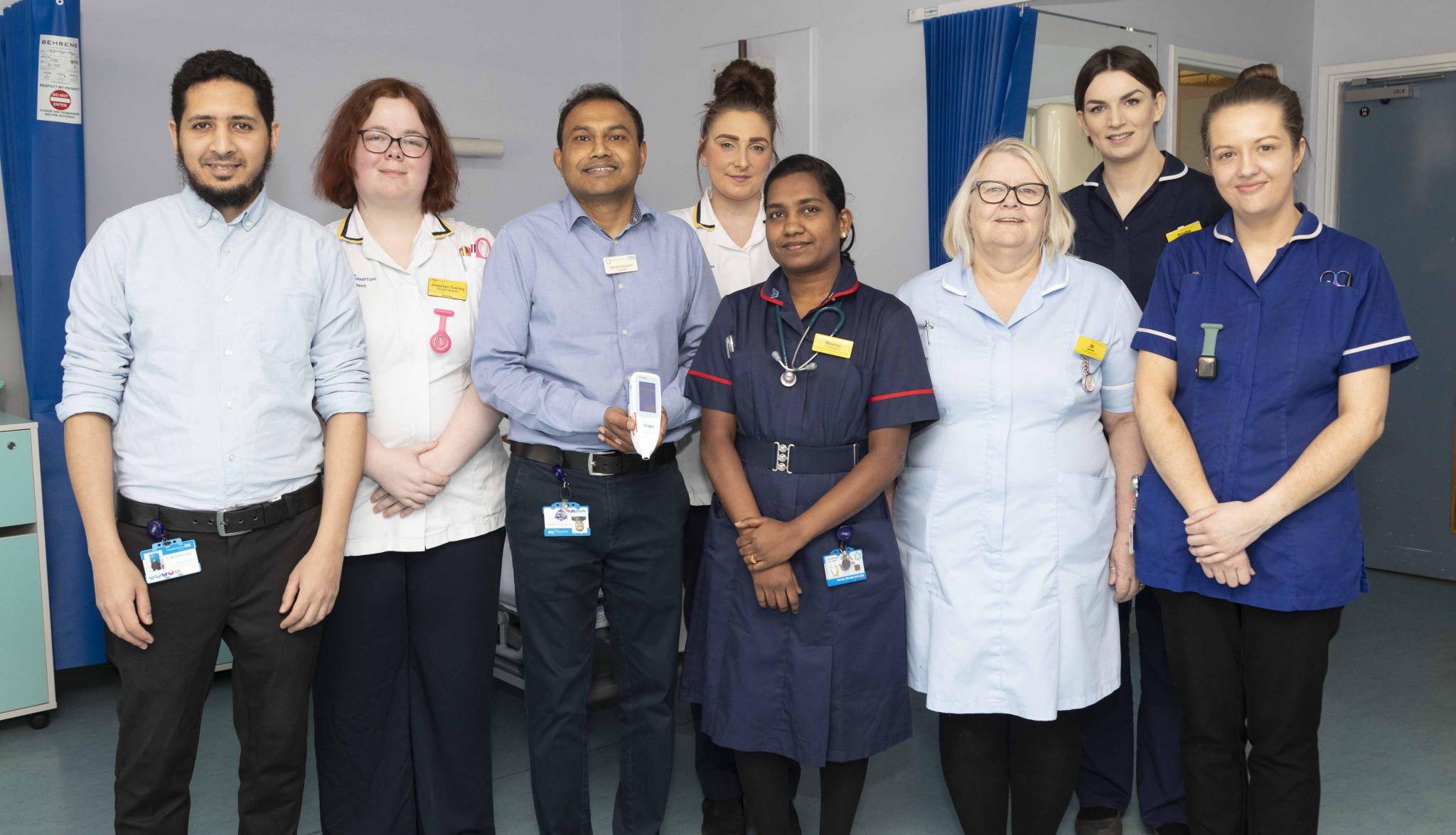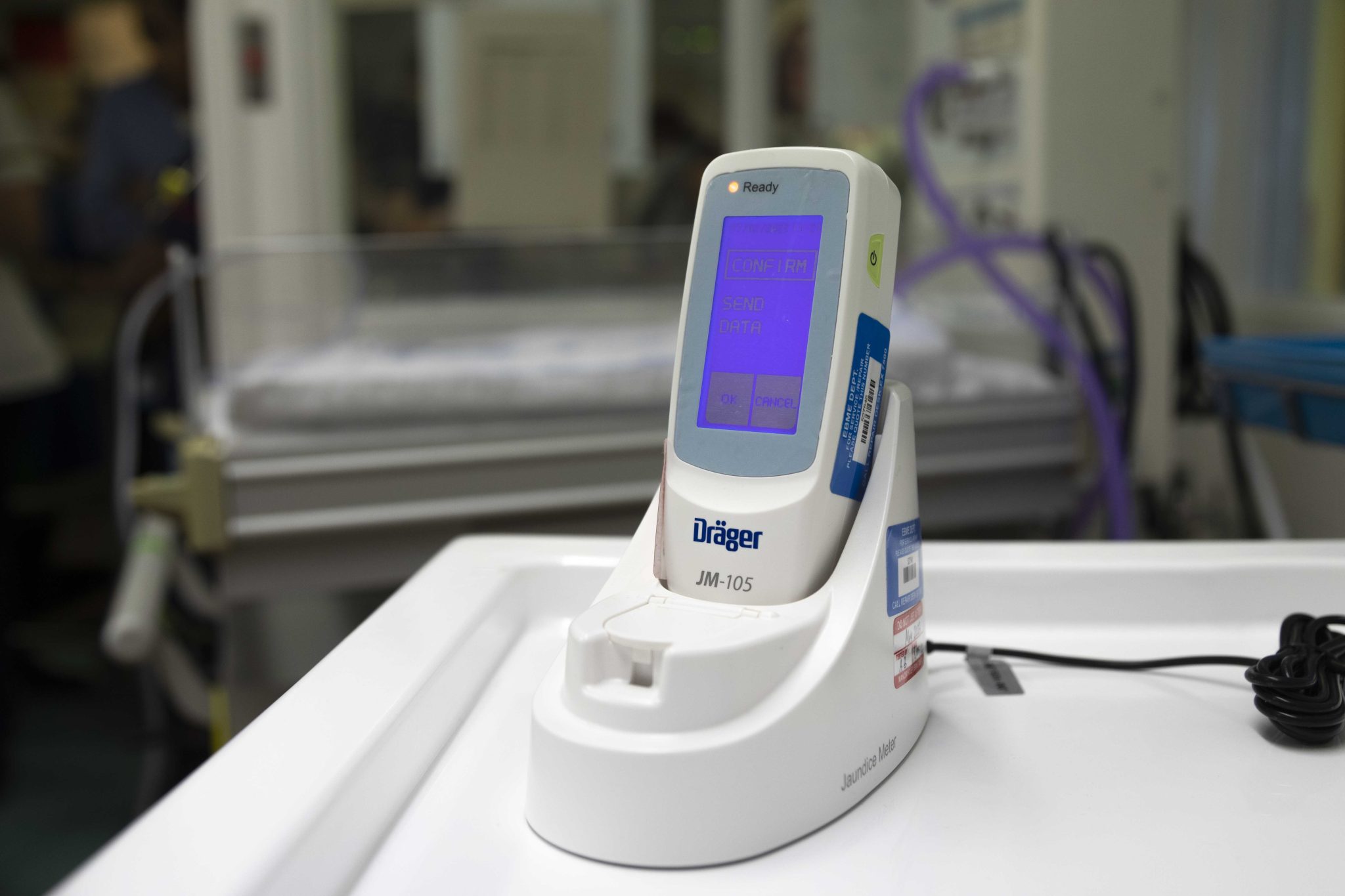A new non-invasive way to test jaundice in babies is being introduced today at Walsall Healthcare NHS Trust.
Jaundice is one of the most common conditions that can affect newborn babies and is usually harmless. It causes yellowing of the skin and the whites of the eyes.
It is caused by the build-up of bilirubin in the blood. Bilirubin is a yellow substance produced when red blood cells, which carry oxygen around the body, are broken down.
Treatment for newborn jaundice is not usually needed because the symptoms normally pass within 10 to 14 days, although they can occasionally last longer. Treatment is usually only recommended if tests show very high levels of bilirubin in a baby’s blood.
The original way of testing jaundice in babies was to take a blood sample from the heel and send it to the lab for analysis. Now, the Trust will be implementing Transcutaneous bilirubin (TcB) testing (screening tool).
This will be carried out by the Midwifery Team in postnatal wards and Community Midwives in the community. There are also plans to use it in the Paediatric Assessment Unit (PAU) soon which will be carried out by the Nursing Team and Doctors within that unit.
TcB testing is a non‐invasive (without the need for a painful blood test) method for measuring serum bilirubin (Jaundice) level in blood.
Dr Ashok Karupaiah, Neonatal Clinical Lead and Consultant Paediatrician said: “We feel really happy to bring this testing to our patients.
“It is a painless method due to not needing a blood test which means our babies are happier and it reduces parental anxiety.
“The results are immediate so there is less waiting time for blood results and more time for our midwifery/neonatal teams to put into patient care as well as being able to accurately advise and reassure families.
“It also aids in referral from the community to the Paediatric Assessment Unit which will mean families can potentially avoid return visits to hospital.
“The Midwifery Team based in our postnatal wards and in the community have shown great enthusiasm in bringing this novel screening tool and the Point of Care Team (POCT) has been a great support throughout implementation of this project.”
The Transcutaneous bilirubinometer is a handheld device which is gently placed on the baby’s chest and works by directing light into the skin. It measures the yellowness of it by analysing the spectrum of light reflected by the skin. The jaundice level is then immediately displayed on the screen and a Midwife or Doctor will check this reading with reference values in a chart.
Meenu Thottungal, Advanced Neonatal Nurse Practitioner added: “I was here at the start of this project and have been training staff so I am really proud that we can offer this now. It will change both baby’s life as well as our staff as it provides a better patient experience and can support an earlier discharge.
Walsall mother-of-three, Arzoo Altaf, aged 29, gave birth to a baby girl (pictured) at Walsall Manor Hospital.
She said: “I had my first two children – my daughter and son – here and they needed a heel prick test to test for jaundice and I remember them both crying. It’s great now that there is a painless method for babies and my newborn was calm and sleeping throughout the process which makes me feel happier as a parent.”




